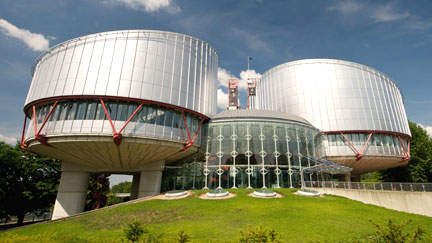The Council of Europe and the European Union
The Council of Europe and the European Union: different roles, shared values
The Council of Europe and the European Union share the same fundamental values – human rights, democracy and the rule of law – but are separate entities which perform different, yet complementary, roles.
Focusing on those core values, the Council of Europe brings together governments from across Europe – and beyond – to agree minimum legal standards in a wide range of areas. It then monitors how well countries apply the standards that they have chosen to sign up to. It also provides technical assistance, often working together with the European Union, to help them do so.
The European Union refers to those same European values as a key element of its deeper political and economic integration processes. It often builds upon Council of Europe standards when drawing up legal instruments and agreements which apply to its 27 member states. Furthermore, the European Union regularly refers to Council of Europe standards and monitoring work in its dealings with neighbouring countries, many of which are Council of Europe member states.
The Lisbon Treaty increased the scope for European Union action in many areas where the Council of Europe already has significant experience and expertise. This has led to increased cooperation on issues such as fighting human trafficking, the sexual exploitation of children and violence against women. It has also opened the way for the European Union itself to sign up to the European Convention on Human Rights, and to other Council of Europe agreements.
Relations between the Council of Europe and the European Union are set out in the:
Council of Europe treaties
Treaties ratified and/or signed by the European Union
Partial Agreements
Partial Agreements of which the European Union is a member or is represented with a special status.
Council of Europe committees
Moreover, the European Union participates in the various meetings of the Committee of Ministers.

The accession of the European Union to the European Convention on Human Rights constitutes a major step in the development of human rights in Europe. Discussed since the late 1970s, the accession became a legal obligation under the Treaty of Lisbon.
Although the European Union is not yet a Party to the European Convention on Human Rights and its acts cannot as such be the subject of applications to the European Court of Human Rights (the Court), the issues relating to Community law have been raised regularly with the Court and the former European Commission of Human Rights.
- European Union accession to the European Convention on Human Rights - Questions and Answers
- Website of the Informal Group on Accession of the European Union to the European Convention on Human Rights (CDDH-UE)
- Report of the Parliamentary Assembly "The impact of the Lisbon Treaty on the Council of Europe"
- The European Union and Human Rights
- Factsheet on case-law concerning the European Union
Secretary General meets EU Commission Vice-President for Values and Transparency
Secretary General marks European Day of Justice in Brussels
Secretary General meets European Commissioner for Justice
Istanbul Convention enters into force in respect of the European Union
Secretary General meets EU Commission Vice-President for Democracy and Demography
The Annual Receipts on EU contributions under Joint Programmes between the Council of Europe and the European Union in 2019, amounted to €206.1 million. Co-funded by EU at 85%, by CoE at 15%
29 new Joint Programmes negotiated in 2019 for a total of €111.7 million.
Global Action on Cybercrime (GLACY), video report on a joint project between the Council of Europe and the European Union


